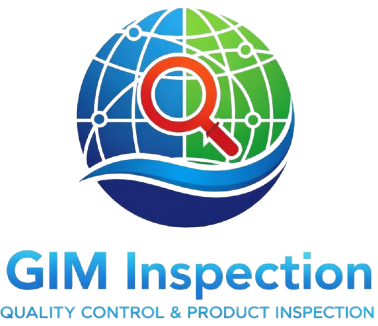Pakistan’s manufacturing industry is one of the largest in South Asia, contributing significantly to the country’s GDP and providing employment opportunities to millions of people. The industry spans various sectors, including textiles, food processing, chemicals, automotive, and electronics. While the country offers manufacturers many advantages, there are challenges to navigate, particularly regarding quality control. In this blog post, we’ll explore the opportunities and challenges of manufacturing in Pakistan and best practices for conducting quality control in the country.
Manufacturing in Pakistan
Pakistan has a rich history of manufacturing, dating back to the Indus Valley Civilization. Today, the country’s manufacturing industry contributes approximately 12.4% to its GDP and employs around 13 million people.
Advantages of Manufacturing in Pakistan:
- Low Cost of Labor: Pakistan has a large pool of skilled and semi-skilled workers, and the labor cost is relatively low compared to other countries in the region.
- Strategic Location: Pakistan’s location makes it an attractive hub for trade, with access to major international markets in Asia, Europe, and the Middle East.
- Abundant Raw Materials: Pakistan has a diverse range of natural resources, including minerals, oil, and gas, which serve as raw materials in manufacturing.
- Favorable Government Policies: The Pakistani government has introduced several policies and incentives to encourage investment in the manufacturing sector, including tax breaks and subsidies.
Challenges of Manufacturing in Pakistan
While there are many advantages to manufacturing in Pakistan, there are also several challenges that manufacturers need to be aware of. These include:
- Infrastructure Issues: Pakistan’s infrastructure is underdeveloped, with limited access to reliable electricity, transportation, and telecommunications.
- Political Instability: The country has a history of political instability, which can lead to disruptions in business operations and supply chains.
- Limited Compliance: Compliance with quality and safety standards can be challenging in Pakistan, particularly in the textiles and food processing industries.
- Corruption: Corruption is a significant issue in Pakistan and can affect the ease of doing business and lead to issues with quality control.
Main Industries in Pakistan
Pakistan’s manufacturing industry is diverse and encompasses a range of sectors. Some of the primary industries in the country include:
- Textiles: The textile industry is the largest in Pakistan, contributing over 60% of the country’s total exports.
- Food Processing: Pakistan is a major producer of rice, wheat, and other agricultural products, and the food processing industry is a significant contributor to the country’s GDP.
- Chemicals: Pakistan has a growing chemicals industry, with a focus on the production of fertilizers, pesticides, and pharmaceuticals.
- Automotive: The automotive industry is a relatively new sector in Pakistan. However, it has been proliferating in recent years, with several major international companies setting up manufacturing plants in the country.
Why to Look at Compliance in Pakistan
Compliance with quality and safety standards is essential for manufacturers operating in Pakistan. Failure to comply with these standards can result in reputational damage, legal issues, and even product recalls. Some of the key compliance issues for manufacturers in Pakistan include:
- Labor Standards: Pakistan has labor laws in place to protect workers, including minimum wage and working hour requirements. Manufacturers must ensure that they comply with these regulations to avoid legal issues and reputational damage.
- Safety Standards: Pakistan has safety regulations in place for industries such as textiles and chemicals, which can be hazardous if proper safety measures are not followed.
- Environmental Standards: The Pakistani government has recently introduced several environmental regulations. Manufacturers must comply with these regulations to minimize their environmental impact and avoid fines and legal issues.
- Product Quality Standards: Compliance with product quality standards is essential for manufacturers to ensure that their products are safe and meet customer expectations. Quality control measures are essential to achieving compliance with these standards.
Conducting Quality Control in Pakistan
Quality control is an essential part of the manufacturing process in Pakistan, as it ensures that products meet the required quality and safety standards. Here are some best practices for conducting quality control in Pakistan:
- Develop a Quality Control Plan: Manufacturers should develop a quality control plan that outlines the quality standards that need to be met, the procedures for quality control, and the tools and equipment required for quality testing.
- Train Employees: Employees should be trained on quality control procedures and provided with the necessary tools and equipment for quality testing.
- Regular Quality Inspections: Routine inspections should be carried out to identify quality issues and ensure that products meet the required standards.
- Partner with a Quality Assurance Firm: Manufacturers can partner with a quality assurance firm like Global Inspection Managing (GIM) to ensure that their products meet the required quality standards. GIM has a team of experts who can conduct quality inspections, audits, and testing to ensure compliance with local and international standards.
Why Choose GIM?
When it comes to the quality assurance process in manufacturing, it’s crucial to choose a trusted partner with the knowledge and experience to navigate complex regulations and requirements. Global Inspection Managing (GIM) is a global quality assurance firm offering a wide range of services to help businesses maintain quality standards and ensure compliance.
Here are some reasons why businesses should choose GIM for their quality assurance needs:
- Experience and Expertise: GIM’s team of experts has a wealth of experience in the manufacturing industry and a deep understanding of relevant regulations and quality standards. Our team blends real-world knowledge with technical expertise to offer customized solutions that meet each client’s unique needs.
- Comprehensive Services: Our organization offers an extensive range of services, including supplier audits, factory inspections, product testing, certification, and training. Our services cover every aspect of quality assurance and compliance, helping clients to reduce risk, ensure quality, and protect their brand reputation.
- Worldwide Reach: GIM has a global network of offices and inspectors, allowing us to provide quality assurance services in virtually any location. Whether clients are manufacturing products in Pakistan, China, or anywhere else in the world, GIM can provide on-site support to ensure that products meet the required quality standards.
- Technology-driven Solutions: We leverage cutting-edge technology to streamline our processes and offer our clients the most efficient and effective solutions. Our proprietary software platform provides real-time reporting and analytics, allowing clients to monitor quality and compliance data in real-time.
- Customer Focus: At GIM, we put our clients first. We work closely with each client to understand their unique needs and tailor our solutions accordingly. Our team is always available to answer questions, provide support, and ensure that clients have the information they need to make informed decisions.
Choosing the right quality assurance partner is essential for manufacturers looking to ensure compliance and maintain quality standards. By following stringent practices, manufacturers In Pakistan can ensure product quality and protect their brand reputation. By developing a comprehensive quality control plan and partnering with a quality assurance firm such as GIM, businesses can overcome these challenges and ensure that their products meet the required quality and safety standards. Our experienced team, a broad range of services, local expertise, and technology-driven solutions are what make GIM an ideal partner for businesses looking to maintain quality standards throughout their operation.

